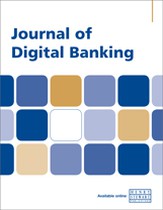Leveraging artificial intelligence for ESG scoring and sustainable investment
Abstract
This paper examines the use of innovative tools based on artificial intelligence (AI) for the assessment of environmental, social and governance (ESG) scores and the potential of alternative scoring to enhance sustainable investing. Despite numerous potential benefits, there is a lack of research on the application of AI algorithms in ESG analysis . This paper provides an in-depth statistical analysis on utilising AI tools for ESG scoring and compares their outcomes with conventional scoring methods. Based on variations in correlation coefficients over shorter versus longer time horizons for the same sample, the analysis suggests that AI-supported integration of traditional and alternative real-time signals could lead to more informed ESG assessment and decision making.
The full article is available to subscribers to the journal.
Author's Biography
Iota-Kaousar Nassr is a senior policy analyst at the Capital Markets and Financial Institutions Division of the OECD, where she leads the analysis of digital finance for the OECD Committee on Financial Markets. Some of her recent work includes analysis of artificial intelligence (AI) regulation in finance, AI and GenAI implications for financial markets, asset tokenisation and DLT-based finance, CBDCs, DeFi and crypto-assets, open banking/open finance and country studies of national FinTech ecosystems. Previously, she worked on issues related to financial markets, small and medium enterprise financing, insurance intermediation and the accession reviews of financial systems for countries seeking to join the OECD, contributing to the work of both the Committee on Financial Markets and the Insurance and Private Pensions Committee. Before joining the OECD, Iota was an investment banker, working on the M&A desks of Merrill Lynch and Citigroup in London. She holds an MBA from ESSEC Grande École and an MSc in accounting and finance from Athens University of Economics and Business.
Caroline Roulet is a financial economist and policy adviser currently working in the macroeconomic policy and research division of the OECD. She co-authored this paper while working in the Capital Markets and Financial Institutions Division of the OECD Directorate of Financial and Enterprise Affairs. A French national, Dr Roulet holds a PhD in banking and finance from the University of Limoges. Her research primarily focuses on international capital markets, banking, market-based finance and corporate finance. She specialises in global market surveillance and financial intermediation analysis, assessing the effectiveness of policy frameworks in enhancing system-wide resilience to support sustainable and inclusive economic growth.
